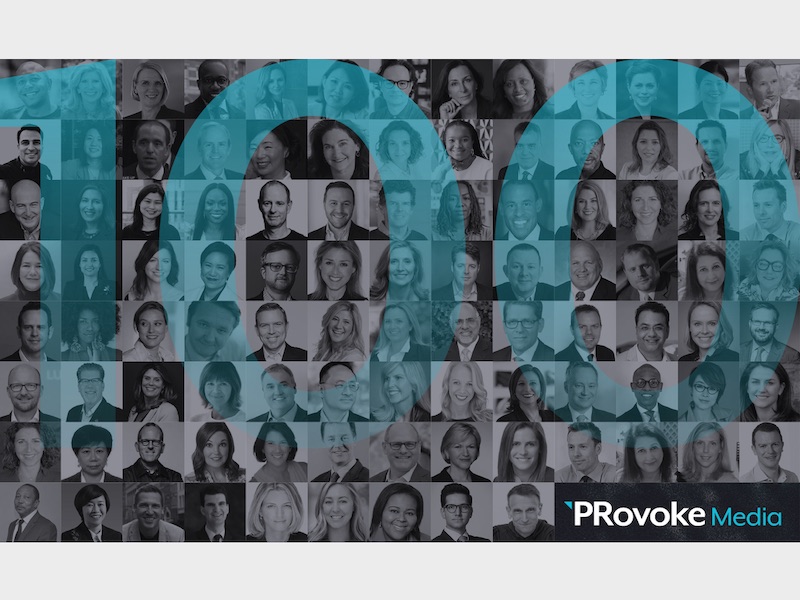Maja Pawinska Sims 04 Aug 2021 // 9:08AM GMT

LONDON — The role of the chief communications officer and chief marketing officer will evolve as a direct result of an increasing business focus on environmental, social and corporate governance (ESG) and its link with reputation, according to a survey of leading CMOs and CCOs.
Surveyed for the Influence 100, PRovoke Media’s comprehensive annual report on the world’s most influential in-house communications and marketing leaders, a majority view from this year’s cohort – expressed for the first time – was that ESG would lead to a rise in prominence of the CCO function.
Among the responses – outlined in the third wave of insights from the survey, published this week – were: “The CCO will need to lead integration of ESG across the enterprise”; “The role of CCO is overtaking CMO with the growing reputational, economic, environmental and social impact expectations of companies, leaders and brands”; and “Best-in-class chief communication officers and chief marketing officers will continue to see their responsibilities broaden and deepen as commercial and social/ESG challenges play out in a multi-stakeholder world.”
The report also looks at diversity in all its facets. Diversity, equity and inclusion has continued to be a spotlight theme for the industry this year, but the research found that last year’s dramatic shift in what CCOs require of their PR agencies, and how committed they think the industry is to diversity, has somewhat slowed down.
In 2020, the number of respondents who agree or strongly agree that their PR agencies must have an ethnically-diverse team was up from 67% in 2019 to 86%; this year, it’s down to 78%. Many more were neutral compared to last year, too: 16% compared to 7% in 2020. And 6% of in-house leaders – a similar level to last year– still disagree or strongly disagree that their agencies must have ethnically-diverse teams.
There is a more stable level of conviction when it comes to whether our respondents think the communications industry is committed to recruiting, retaining and promoting people of colour: 52% agreed or strongly agreed, compared with 53% last year, compared to just 37% in 2017. A further 32% were neutral, up from 22% last year. And only 14% now think the industry is not committed to resolving issues of racial inequity, with no-one strongly disagreeing – compared to 25% who disagreed or strongly disagreed last year.
When it comes to gender, there’s been a worrying drop off in the number of CCOs who agree their PR agencies must have a gender-balanced account team, down from 82% last year to 73%, below 2019’s figure of 77%. There were also many more neutral respondents this year, although the number who disagreed that gender balance was a requirement of their agency teams was down notably to 2% from 11% last year.
There was a slight increase in the number of our influencers who agree that the industry is committed to recruiting, retaining and promoting women, from 84% last year to 82%. A further 16% took a neutral position, with only 2% saying they disagreed with this statement and no-one saying they strongly disagreed.
We also asked our Influence 100 to delve deeper this year, and come up with practical suggestions for what the PR industry could actually do to improve diversity, equity and inclusion. Two areas of focus stood out in the responses: recruitment in general, and bringing younger people from more diverse backgrounds into the industry.
One respondent eloquently summed up the complexity of the issue: “Businesses cannot solve the problems of today or tomorrow with a mindset of the past. With regard to diversity, equity and inclusion in PR, just do it! For the sake of innovation and relevance, cultivate and appoint leadership and account teams who have the cognitive diversity that comes from a fierce combination of the diversity you can see and the diversity you must inquire about (life experience, problem-solving style, barriers successfully overcome in life experience, leadership style). The two types of diversity are inter-related and invaluable for crafting teams and solutions that break convention and result in a competitive advantage.”
When we asked our respondents more generally about their predictions for the future of the CCO and CMO roles within businesses, the responses were largely aligned. Many, as in previous years, feel that there will be more integration and a blurring of the two roles.
The survey also provides insights into the greatest communications challenges they and their organisations are facing in lockdown. The top two responses – cited by 60% of respondents – were workplace disruption, up from 49% last year, and staff health and wellbeing, up from 46% in 2020. Other concerns were travel and movement restrictions, customer disruption, sales and earnings, misinformation and layoffs.
Profiles of the Influence 100 can be found here, including Q&As from many of this year's list. Insights into their demographics and background here; and research into budgets and how they manage agencies are here.


































.jpg)

















